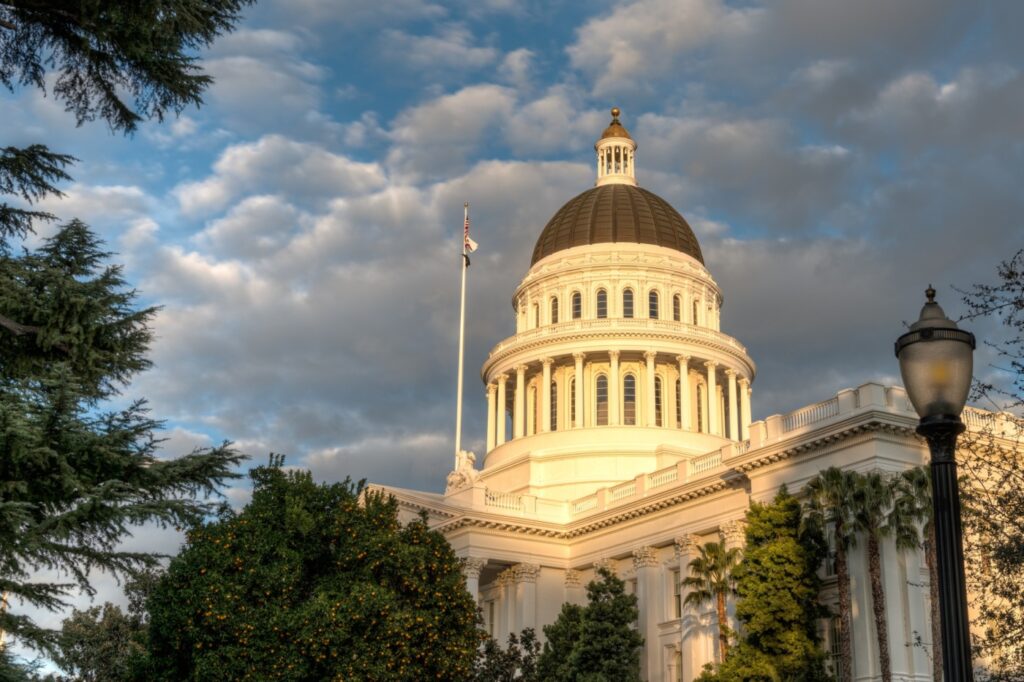
Anyone in California who would like to open an individual retirement account can walk into, or log into, any number of well-established financial services companies to see an array of options. One of those options is to have an automatic recurring withdrawal from current earnings or savings. It’s a useful way to “pay yourself first” and save money for the future.
There’s no need for a government program to enable automatic withdrawals from paychecks in order to deposit money into retirement-savings investments approved by the government.
That’s why the Howard Jarvis Taxpayers Association filed a lawsuit in 2018 challenging CalSavers, the newly enacted state-run retirement savings program for private-sector employees. When fully implemented, CalSavers will impose burdens and risks on private employers since participation is mandatory for most employers who do not offer a company retirement program. Those burdens are just now manifesting themselves as the program ramps up.
The legal claim against CalSavers was based on ERISA — the federal law governing retirement programs. Our lawsuit was supported by the Trump administration’s Department of Labor, which filed an amicus curiae brief in the Ninth Circuit Court of Appeal agreeing with HJTA’s position that CalSavers was inconsistent with the intent of ERISA to pre-empt the field of regulating retirement plans. When Joe Biden was elected President, he directed the Labor Department to withdraw its support of our lawsuit.
The purpose of ERISA is to protect both employers and employees by setting minimum standards for retirement plans provided to employees in private industry. It requires plan sponsors to provide participants with certain disclosures, including important information about plan funding as well as imposing fiduciary responsibilities on those who manage and control plan assets. It requires plans to establish a grievance and appeals process for participants and gives participants the right to sue in federal court for benefits and breaches of fiduciary duty.
But some progressive states wanted to expand their public employee retirement programs into the private sector. So they sought — and received — a regulatory interpretation from the Obama administration which, the states argued, granted them an exception from ERISA. Forgetting for the moment the issue of whether that federal regulation was even legal (a recurring problem for much of President Obama’s regulatory efforts), it was rescinded shortly after President Trump took office. That stripped CalSavers of its only fig leaf of legal justification.
Regrettably, the federal courts did not see things our way and, with the denial of our Petition for Certiorari by the U.S. Supreme Court last week, CalSavers will proceed without hindrance from the federal courts, notwithstanding a clear expression of intent from Congress that such programs are inconsistent with the letter and spirit of ERISA.
Related Articles
Los Angeles is a microcosm of California’s housing crisis
Oh, to throw a Molly at V. Putin
California’s economy is losing its diversity
West is taking wise approach to Ukraine war
Crime, justice and district attorneys
We hope Congress steps in because we have little confidence in the ability of California to do anything complex. Should state bureaucrats be in charge of a new retirement program given the Employment Development Department’s $30 billion fraud scandal and the unrelenting problems with CalPERS and CalSTRS?
Our fear is that, without congressional action establishing minimum standards and oversight of state-run retirement programs for private employees, CalSavers will quickly become the retirement plan version of the bullet train — a wasteful, risky and unnecessary program that will succeed only in sucking up taxpayer dollars.
Jon Coupal is president of the Howard Jarvis Taxpayers Association.
